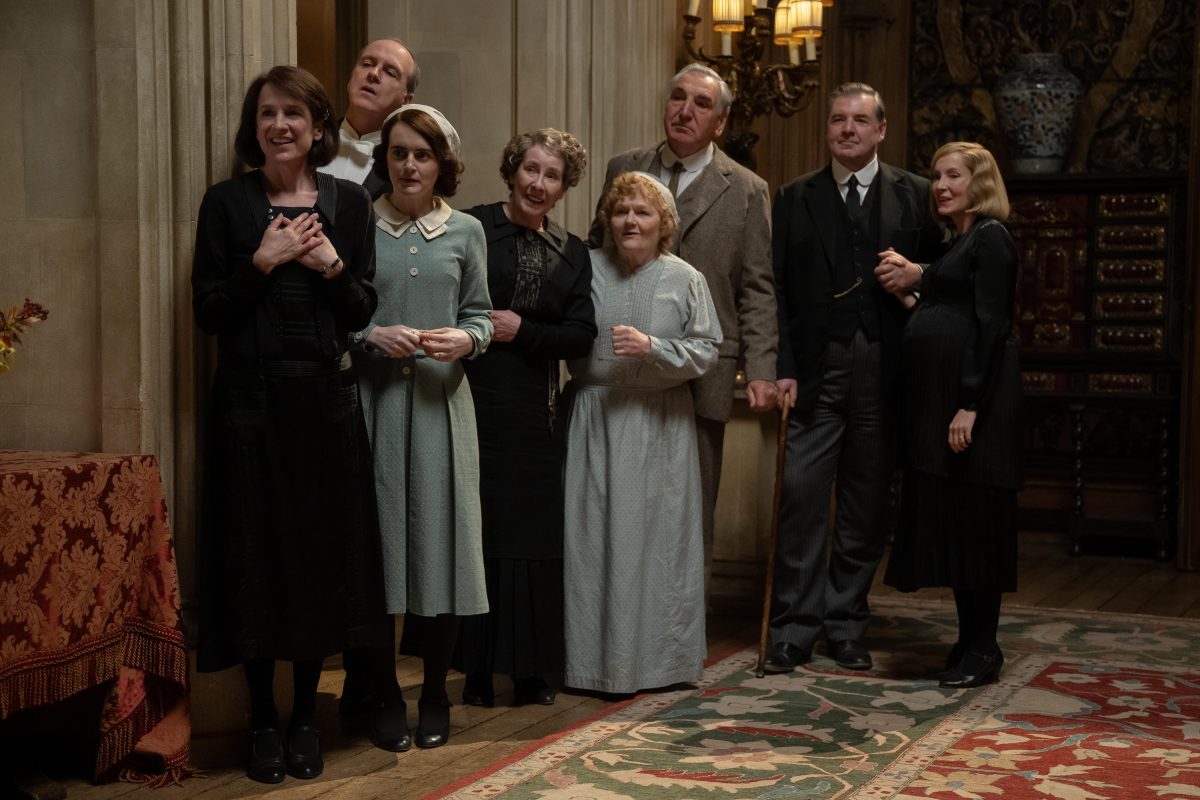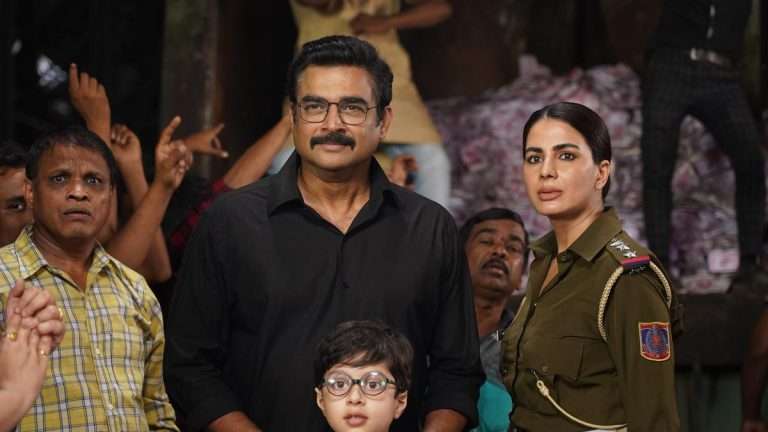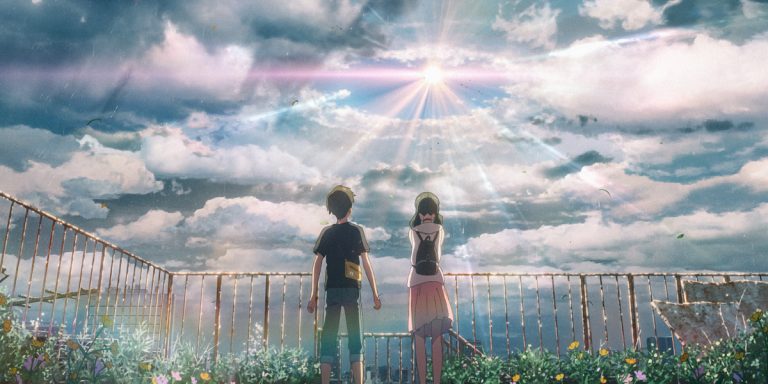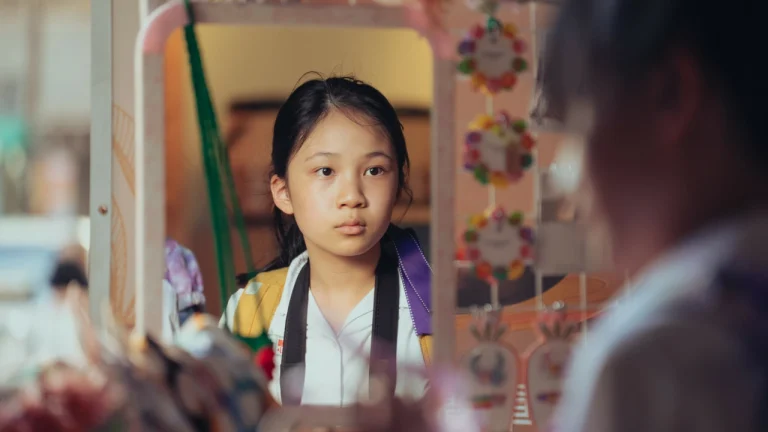It would not be insulting or inaccurate to describe the trilogy of “Downton Abbey” features as the most expensive fan films ever made. While it is not uncommon for there to be theatrical releases inspired by recent hit shows, the “Downton Abbey” films are a direct continuation of Julian Fellowes’ acclaimed PBS drama, and largely conform to the same style. Beyond their expanded running time and more robust ensemble of guest stars, the “Downton Abbey” films are extended episodes of the show, and would be largely incomprehensible to those who aren’t familiar with the source material. “Downton Abbey: The Grand Finale” may not reach the psychological depths of its two predecessors, but its unabashed earnestness is hard not to admire.
“Downton Abbey: The Grand Finale” may not be the last time that Fellowes returns to this continuity, as the film at least leaves the door open for a new generation of stories. However, it’s also a film that benefits from the investment that its characters have earned over the course of the last fifteen years. There’s no impulse to dramatically heighten the stakes, nor does the film attempt to challenge the fundamental respect for the dignified, sympathetic depiction of class-based society in the early 20th century that defined the series. “Downton Abbey: The Grand Finale” exists as a heartwarming last hurrah that brings the story to an emotional, albeit predictable, finish. In this sense, it’s no different than other fan-centric franchise films like “Avengers: Endgame,” “No Time To Die,” or the final entry in the “Harry Potter” series.
As the residents of Downton Abbey cope with the death of Violet Crawley (Maggie Smith), the Dowager Countess, the Crawley family faces public backlash as Lady Mary Talbot (Michelle Dockery) divorces her husband. The notion of scandal threatens the family’s attempt to maintain its social standing, and a series of financial difficulties begins to chip away at the generous fortune that the Dowager Countess had left behind. Robert Crawley (Hugh Bonneville) is left to consider what the future of his estate looks like. Even if Downton Abbey maintained traditions that had been held for generations, the dawn of the 1930s suggests that Great Britain’s infrastructure will be dramatically revamped.

Even if “Downton Abbey: The Grand Finale” is about the anxiety of change, the film itself does not feel rushed in reaching its conclusion. Although the monetary crisis does force the characters to face hard decisions, the film does not artificially attempt to make leaps in the story that would feel inconsistent with what was achieved in the series. There’s a philosophical debate to be held about the merits of this approach. What, if anything, makes “Downton Abbey: The Grand Finale” worthy of a theatrical release? The honest truth is that the show represented an era of prestige television in which new entries felt like a cinematic event. Even if “Downton Abbey” pales in comparison to more recent period dramas like “The Crown,” the weight and history behind the interpersonal relationships are enough to justify a bit of spectacle.
20 Best Historical Dramas of All Time
“Downton Abbey: The Grand Finale” may contain a few knowing references to key events in the series, but Fellowes’s sharp screenplay is remarkably aware of how the societal anxieties and political reforms of the 1930s made a more traditional imagining of the class system feel retrograde. Even if the film isn’t interested in dealing with the darker backdrop of Europe in the years leading up to World War II, there’s a surprising ability to accept that certain things change, which may put those in power in a vulnerable position. Although Fellowes may have withered some criticism for his more forgiving portrayal of the aristocracy throughout all of his work, “Downton Abbey: The Grand Finale” is willing to both celebrate the merits of traditionalism and open the door to minority groups that hadn’t previously earned representation.
As was the case in the series, the film draws a fine line between the storylines involving the “upstairs” and “downstairs” residents of Downton Abbey, even if those lines are far more fungible than they’ve ever been. The “downstairs” segments are almost entirely reliant on the charisma of the stars to elevate light melodrama, but that’s not exactly a flaw considering the remarkable draw of actors like Jim Carter, Phyllis Logan, and Michael Fox. The most intriguing component is the return of the former butler Thomas Barrow (Robert James-Collier), who had become the secret lover of the movie star Guy Dexter (Dominic West) in the previous installment. West and Barrow have such natural chemistry that it would be easy to imagine an entirely separate film about their concealed, yet passionate relationship.

Amidst the upheaval that the “upstairs” characters face, Dockery is once again a standout, as the film examines Mary’s emergence as a protector and guide to the family’s legacy. It’s a mature character arc that has shown grief, heartbreak, and existentialism over time, and Dockery manages to peel back new layers to Mary as she seeks to defend her respectability. Even if the controversy regarding her divorce may seem tame, the film makes the case that the judgments about her personal life are representative of a larger culture of conformity that has rightfully begun to fade away.
The only substantial new addition to the film is Alessandro Nivola as the dashing Gus Sambrook, a friend to the American businessman Harold Levinson (Paul Giamatti) and his sister Cora (Elizabeth McGovern), who offers a potential solution to save Downton Abbey from its financial woes. While his involvement in the story is resolved a bit too swiftly, Nivola perfectly finds the mix of soapiness and sincerity that makes Fellowes’ writing so memorable. Giamatti is also a welcome presence, as an actor of his caliber can be tasked with emphasizing both dramatic and comedic undertones when needed.
To call “Downton Abbey: The Grand Finale” a work of “fan service” would be deceptive, as there is nothing within the dramatic structure that feels unearned. The production values are top-notch, the dialogue is sharp and witty, and at times the film veers into reflective territory that resonates deeply. It’s possible that in an era where prestige television is often more sophisticated than what’s available to mass audiences on the big screen, the charms of “Downton Abbey” might seem quaint. It would be in Fellowes’ best interest to reap the benefits while the show is still largely respected, and “Downton Abbey: The Grand Finale” is certainly a graceful concluding installment.





![This Is Not a Burial, It’s a Resurrection [2020]: ‘Sundance’ Review – A haunting parable about loss of individual and collective identity](https://79468c92.delivery.rocketcdn.me/wp-content/uploads/2020/01/This-Is-Not-a-Burial-Its-a-Resurrection3-highonfilms-768x432.jpg)


![Dunkirk [2017]: Nolan Transports You Into a Catastrophic War and Brings You Home](https://79468c92.delivery.rocketcdn.me/wp-content/uploads/2017/07/dunkirk_1-1024x640-e1500542266180-768x385.jpg)